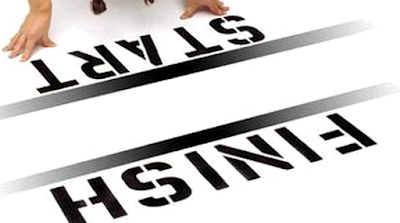Money Magazine - Money habits that make you poor
Managing money is one task each and every one of us is confronted with on an everyday basis. Most often it is seen that one works very hard, earns well, splurges and then there is hardly anything left for the proverbial rainy day. This vicious cycle continues and when an emergency pops up, one is left to face the ugly truth that you may be broke.
In such a situation it would be worthwhile to consider what are some of the bad financial habits that makes one go broke. Being financially independent doesn't mean earning alone, it means using your money judiciously and at the same time making money work hard for you.
In such a situation it would be worthwhile to consider what are some of the bad financial habits that makes one go broke. Being financially independent doesn't mean earning alone, it means using your money judiciously and at the same time making money work hard for you.
1) Saving after all your expense is done
What's the first thought that comes to your mind once you receive your pay cheque? It may most probably be on the lines- Let me pay all pending utility, credit card bills; got to settle the money that was loaned from friend to tide over that last one week of the previous month etc. Once all these payments are taken care of, you may want to lighten up a bit and go partying or shopping. In this process, 9 out of 10 times, money is wasted on a plethora of unwanted items. And once all this is done, there is hardly anything left to save.
This mentality or way of life is the easiest way of assuring perennial financial trouble. But all is not lost. By making a small tweak in your way of life, a small course correction, a lot can be achieved. Learn to save first and then spend the remaining amount rather than spending first and then trying to save.
To Do: Decide to keep aside a certain percentage of your monthly income in a separate savings bank account and mentally mark that account as 'do not touch'. So once all the bills are settled, next on the priority list should be putting that 'X' amount of money in the earlier mentioned saving account.
The idea here is to have a separate salary and savings account, such that the money in the savings account is out of reach for day-today activities. This should be rigorously followed and over a period of time when it becomes default practice, know that you have successfully completed your first step towards financial discipline.
2) Not budgeting
US Vice President Joe Biden once said, "Don't tell me what you value. Show me your budget and I'll tell you what you value." Even though this statement has an underlying political connotation, the same thought holds true for individuals as well.
Not preparing a budget means you are going to spend on whatever you may need and/or not need without a second thought. There is hardly anything to stop you from spending as there will be several items to entice you to loosen your purse strings everyday till there are only a few pennies left.
So what is budgeting? Budgeting is nothing but the process of creating a plan to spend ones money. It helps one realize what is to be prioritized and focus on things that are most needed. This not only keeps finances on track but also helps one keep a cool mind. Following a budget will help keep one out of debt by curtailing discretionary spending.
To Do: Given that we live in a spreadsheet era, it will do a lot good if we could open an excel sheet to prepare our budget as well. Write down everything that needs to be done during a particular month for which money will be required. Read through the list thoroughly once again, jotting down the reasons and the tentative amount required for each need. This practice will help one to keep in check any unwanted splurge. Month-on-month comparison of spending will itself reveal several actions/purchases, which could be best, avoided, if one had planned in advance.
3) Not investing
Post the last two steps, it would be safe to assume that you have saved your hard-earned money in the designated saving account. Now that the money has been steadily piling, its time to think about investments. Holding all the cash in a bank account alone won't help you make wealth in the long run. By doing so, you are willfully letting your money decay. This is because currently banks are paying on an average a mere 4% on your balance held in your account, at a time when several other low risk financial instruments are providing an assured 7-8% return on investment.
Also, one has to understand that for long term wealth creation, investing is a necessity. One should be aware of their short, medium and long term goals and accordingly choose financial products that will help attain your goal. Having an exposure only to a single asset class is a grave mistake as one loses out on the possible gains in other asset classes.
To Do: It's time to make the money work hard for you. First decide the goals that you are saving for. Start with simple products like Fixed Deposits, Recurring Deposit and PPF. Post this; consider buying a life and health insurance. In case if you think you need professional help, approach a financial adviser. Such a person will not only help you make the right choices but will also help you to have proper exposure to various asset classes as per your risk appetite.
According to Feroze Azeez, Deputy CEO- Anand Rathi Private Wealth Management, the ideal strategic asset allocation would depend on the individual circumstances i.e. ones objectives and constraints. One may want to start with a base allocation of 50% - 50% Equity and Debt and move it up or down depending on his return objective, time frame, liquidity requirement and risk taking ability. Taking in perspective the current market scenario and views on various asset classes for the coming few years, investors can tactically increase their equity allocations while keeping a check on the earlier mentioned personal parameters.
4) Not setting up an emergency fund
The only 'certainty' about life is 'uncertainty'. Therefore, it is very essential to have an emergency fund to insulate a person from any sudden financial needs for which a chunk of money is required. It may be in the form of unexpected hospitalization, loss of job, natural calamity etc. Not having a fund to cater to such emergencies will mean taking on debt just to tide over a particular difficulty.
For example: What if you lost your job this week. Are you financially prepared to face this situation? In case if you have an emergency fund, the amount saved here will help you brave the situation and face the crisis, till you find a new job. That's why financial planners often say, an ideal emergency fund should be equivalent to your three to six months salary.
To Do: Here again, you have to be disciplined and allocate 10% of your monthly income to this fund. Incase if find this difficult to do, go the thrift way. Though it may sound harsh, sell all your unwanted junk items. Cut out all those memberships that you are not using like the ones for hobby classes, gym etc. Credit card- stop using them if you are a careless lot and try cash - it may hurt when you spend hard cash, which itself may act as a deterrent. And as an extreme measure, stop having dinner at fancy restaurants every week and starts and preparing Coffee at home rather than heading to Starbucks every alternate day. The money saved through this process can be parked in the emergency fund. This action will surely help you regain a bit of financial sanity and help create a fund which may turnout to be a life saver some day.
5) Bingeing on EMIs
Thank God for EMIs! Otherwise I couldn't have bought this gadget. This is the thought process of most of younger generation today. Earlier only a home or a vehicle loan were available on EMIs. But now, everything from a microwave to the latest iPhone, is available on EMI. Even though options are good, sometimes these very options can turn into a terminal illness, which can eat into your financial well being.
Financial planners are of the view that there are two types of loans- good loan and bad loan. A good loan can be defined as financial assistance taken to create an asset, which over a period of time has the potential to give better returns. Example: Real Estate.
On the other hand, if the purchase of an object on EMI which only has the potential to depreciate over time….then that's a bad loan. Example: Splurging on modular kitchen. In short, refrain from using EMI to change your wants into needs!
What one needs to realise is that living on EMIs makes sure of current affordability eating into your future savings. Hence, these easy money opportunities should be used with restraint. Sometimes while struggling to pay monthly EMI, one may forget to save for future needs, which is a bigger danger. This leads to one craving for job security more than ever just to services these EMIs, creating unwanted added pressure. So think twice before going the EMI way
To Do: Keep a check on unnecessary expenses and strictly avoid buying frivolous things on EMI. Always keep in mind your repaying capacity. Even though EMI is light on pocket, more often than not it a trap towards debt abyss. The farther you stay from this three-letter trap, the better it is for you.



Comments